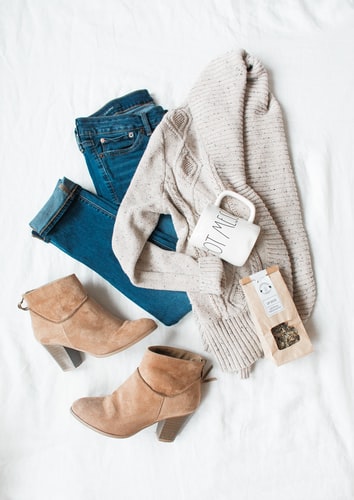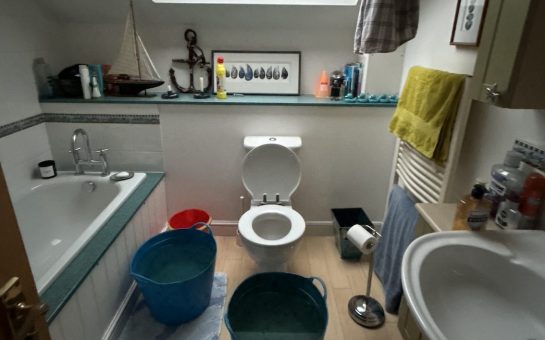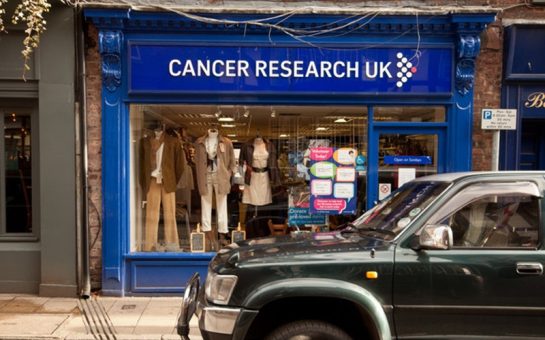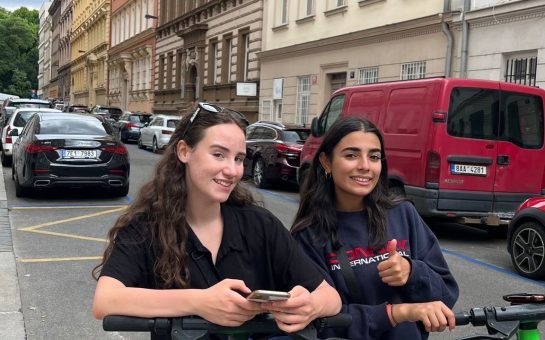Since 2017, clothes swaps and sustainable fashion have risen in popularity, beginning the fight back against climate change and ‘fast fashion’.
Many Brits buy items and only wear them only once or twice. The UK is a nation of fashion lovers, spending £58.4m on clothing in 2018.
Waste and Resources Action Programme (WRAP) released a report on clothing waste in 2017. The findings revealed 23.2 tonnes of carbon and water waste of 7,060 metres cubed per tonne of clothing.
According to WRAP’s figures released at the end of June, 50% of the population are concerned about the environmental impacts of clothes waste so avoid generating clothes waste. This figure has risen from 31% in 2017.

Luli Rocha, an environmental engineer has been doing clothes swaps for quite a few years.
Luli said: “Swaps are more sustainable and help in the circularity of things. I love them.”
Many London waste management organisations are encouraging people to reduce their clothing waste. An example is the North London Waste Authority (NLWA). South London Waste Partnership (SLWP) is a similar organisation aiming to reduce waste.
The two organisations manage transportation and disposal of non-recyclable waste and recycling and composting across their respective London boroughs.
NLWA’s Stop and Swap campaign aims to fight against clothes waste with online clothes swap events and Instagram Live Q&As. The Q&As feature a range of influencers, journalists and activists.
Stop and Swap is in collaboration with Nuw (a clothes swapping app) and Love not Landfill. Readers are invited to join an Instagram Live on Wednesday 3 December at 6pm. Youtuber and Instagram influencer Yosola Akinwumi will show viewers how to make an unwanted t-shirt into a new one.
Madeleine Burbidge Communications Officer at NLWA said: “There is £30billion worth of unworn clothes in UK wardrobes and research shows that extending the life of clothes by nine months reduces their impact on the environment by 25%.
“Swapping means you get ‘new’ clothes for free whilst helping to tackle climate change. We hope to encourage young north Londoners to swap unwanted clothes instead of throwing them in the bin, demonstrate that buying new is not the only way to enjoy clothes and reduce the amount of clothing ending up going for disposal.”
Nuw was created in 2018 by Aisling Byrne after she went to India on a trip and saw the effects the clothing industry was having on the environment and people first-hand. She wanted to do more when she got home so started running swap shops at her university- Trinity College Dublin.
Nuw works by allowing people to swap and share their clothes on their app as well as browsing and arranging swaps, pickups and returns.
Chief operating officer Roisin Kelly said they got involved with Stop and Swap because they wanted people to have the excitement of swapping clothes again via their app.
Roisin added: “People have really been clearing out their wardrobes. We are in an economic downturn so people do not have the money to be spending. Sustainable fashion is accessible and you do not need to consume fast fashion.”
Love not Landfill launched in 2018. It was set up by London Waste and Recycling Board (LWARB) as part of the European Clothing Action Plan (ECAP). ECAP was a project concluding in 2019 addressing clothing sustainability through design, production, consumption, public procurement, collection, recycling and reprocessing.
Love not Landfill continues with full funding from LWRAB as of January 2020. Hannah Carter, campaign manager said LWARB helps London’s boroughs meet the Mayor’s waste reduction and recycling targets.
Love Not Landfill aims to change the behaviour of young Londoners in how they buy, care for and dispose of clothes – reducing clothes waste and increasing the amount of unwanted clothes getting reused or recycled.
Of Stop and Swap Hannah said: “The Love Not Landfill team has helped to style and bring the campaign together, promoting the events through our social network, working with influencers and journalists and overseeing the whole swapping process.”
The clothes swap events run until February 2021 with a break for Christmas. More information about the campaign and how to join in is available here.




